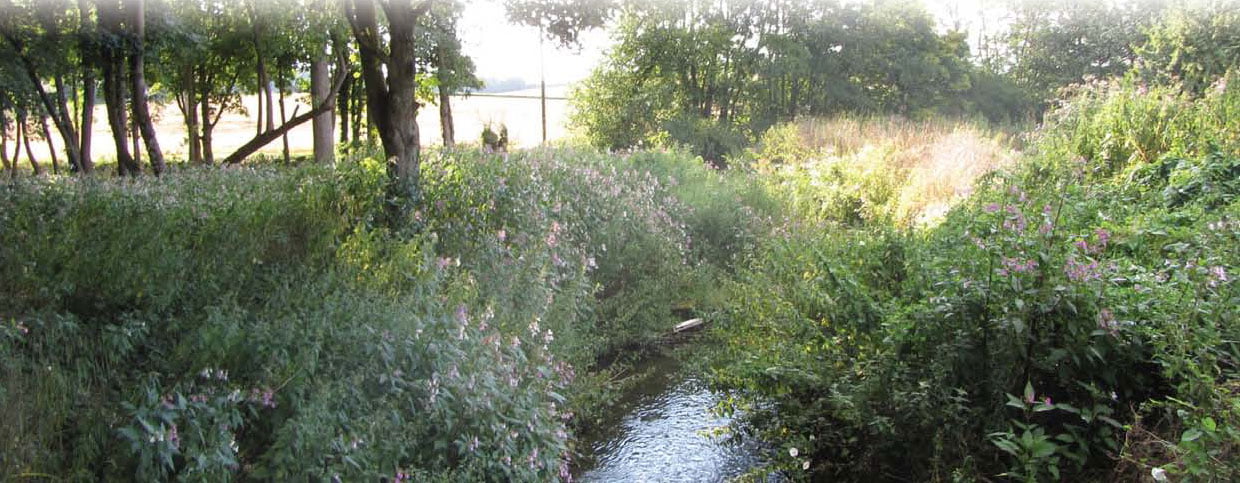Breaking New Ground in Wastewater Treatment
PWS Supports New PhD Research at the University of Southampton
Robert White
Plantwork Systems has always been passionately committed to developing leading edge technological solutions for sustainable wastewater treatment. We are especially excited therefore to be supporting a new PhD research position at the University of Southampton, looking specifically at enhancing nutrient removal and reducing environmental impact of wastewater treatment.

Matt Irwin, PhD Researcher at the University of Southampton
New Research
Microbiologist Matthew Irwin is undertaking an interdisciplinary PhD at the University of Southampton, focusing predominantly on Microbiology, and to a lesser extent Civil Engineering. This PhD is co-funded by Plantwork Systems and the South Coast Biosciences Doctoral Training Partnership (SoCoBio DTP). Within the University, he is completing the PhD under the supervision of Professor Jeremy Webb and Dr Yongqiang Liu.
Matt comes to this research with a wealth of relevant skills and experience. He has already completed an MRes at the University of Southampton, investigating the effects of water hardness on the microbial composition and characteristics of biofilms within Aerobic Granular Sludge (AGS). Throughout his masters, Matt gained many skills in microbial analysis and a much greater understanding of sustainable wastewater treatment technologies. For this PhD he is particularly interested in the possibility of tailoring the microbial community within wastewater treatment reactors to enhance nutrient removal and reduce environmental impact.

It’s a very exciting partnership between engineering and microbiology expertise that could have significant implications for the future of wastewater treatment, as well as the development of improved solutions to freshwater pollution.
Working with Plantwork Systems will give Matt the practical opportunity to interact with full scale working wastewater treatment reactors. In doing so, he is particularly interested in exploring the differences in the microbial communities between In Vitro and In Vivo reactors.
If his research project is a success, Matt believes it would eliminate the requirement for a selector tank and reduce the extent that reactor parameters need to be controlled. He also believes that this would give wastewater engineers the possibility to explore new reactor parameter configurations, the likes of which were previously considered suboptimal, due to the presence and promotion of problematic microbial groups.
It’s a very exciting partnership between engineering and microbiology expertise that could have significant implications for the future of wastewater treatment, as well as the development of improved solutions to freshwater pollution. Matt expects that over the next 50 years there will be continued collaboration between engineers and microbiologists that will allow for exciting further refinement of sustainable wastewater treatment systems.
Beyond direct wastewater treatment, he also expects such collaboration to be invaluable to meet the increased demand for solutions to freshwater/river pollution. As recent studies have identified how only 40% of European surface water bodies achieve good ecological status, this is becoming an increasingly urgent need.

Plantwork Systems has always been committed to the research and development of existing and new technologies, with focused, clear objectives.
Working Together
Plantwork Systems is excited to be playing such an important part in the development of such solutions. As a technology company, maintaining our technological edge is fundamental to the company and, since its inception over a decade ago, we have always been committed to the research and development of existing and new technologies, with focused, clear objectives.
In this, our latest collaboration, Plantwork Systems is delighted to be working with Matt and the University, offering our technical expertise and innovative design to continue to break new ground with this research, and furthering our commitment to making a tangible, positive contribution to a sustainable, clean environment.

Article by Adam White, Plantwork Systems Operations Director
